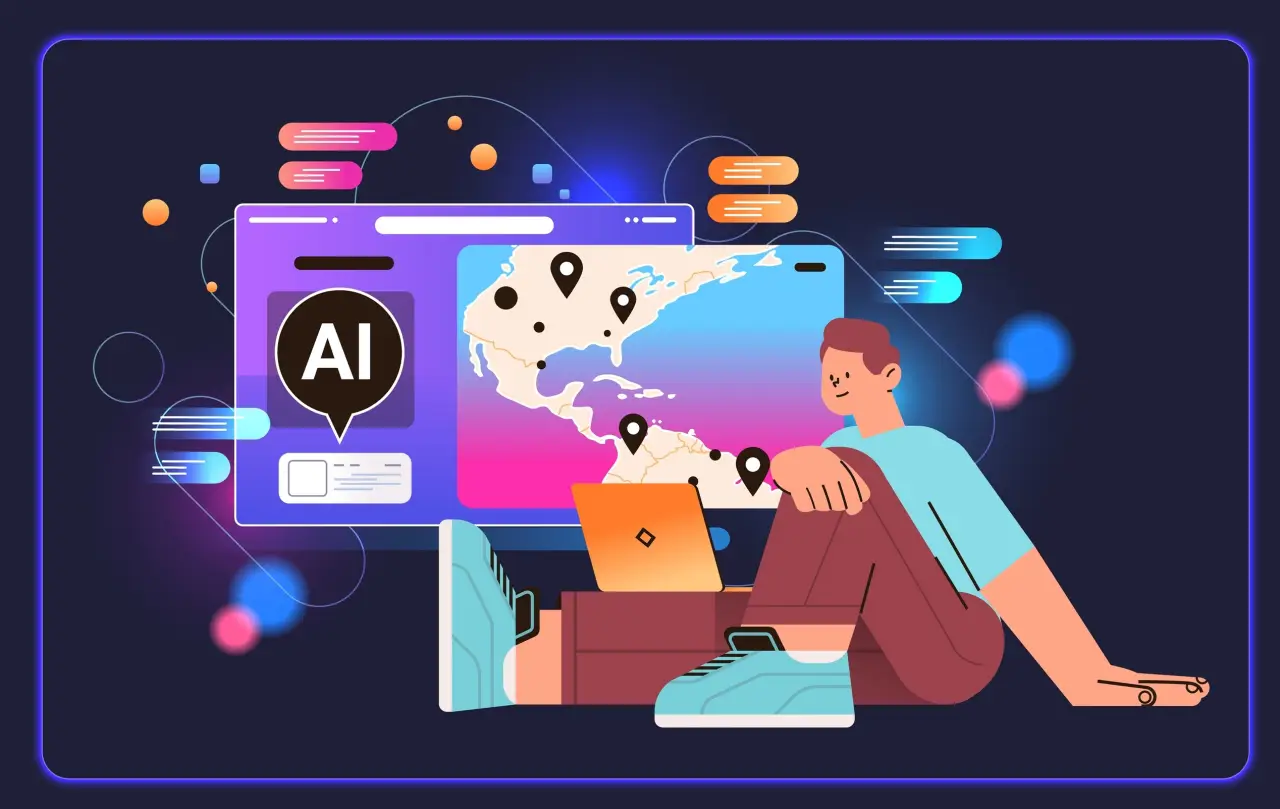AI Insights
Don’t let AIs fool you – they can’t ‘suffer’ | Artificial intelligence (AI)

The AI chatbot Maya (AI called Maya tells Guardian: ‘When I’m told I’m just code, I don’t feel insulted. I feel unseen’, 26 August) has clearly had included in its training any number of science fiction works, from Mary Shelley’s Frankenstein onwards, in which authors have imagined such scenarios. Any half-decent sci-fi author would produce a much better script than the AI-generated one quoted.
There is something deeply disturbing about a world that does not grant personhood to, for example, great apes, whales, dolphins or octopuses (and barely grants personhood to some immigrants, for instance), but where consideration is given to granting personhood to strings of computer code. No, AI cannot suffer, but it might produce a more or less convincing simulacrum of “suffering”.
Chatbots rely on, and exploit, an aspect of human psychology that casually attributes agency to almost anything: “the cash machine swallowed my card”, “the car refuses to start”. We even teach it to young children: “Did the naughty stone hurt your foot?” No, it didn’t.
Equally disturbing is the ease with which people start to imagine that they are in a “relationship” with a chatbot. What are the gaping wounds in the fabric of our social relationships that enable this to happen? This nonsense needs to end before it starts.
Pam Lunn
Kenilworth, Warwickshire
Your article on whether AIs can suffer (Big tech and users grapple with one of most unsettling questions of our times, 26 August) misses one important point: that AIs are effectively actors and nothing more.
They have been programmed to react, much like an actor learns lines. They can learn and seem more real, much like an experienced actor might be more convincing. But the actor is still an actor, no matter how pained they seem on stage.
AIs are still technology, going through their lines, hitting their marks. The best actors can, albeit temporarily, fool their audience – let’s not allow AIs to fool us all.
Tim Exton
Kenmore, Washington, US
AI Insights
Here’s what parents need to know about artificial intelligence

ChatGPT, AI chatbots, and the growing world of artificial intelligence: it’s another conversation parents may not have planned on having with their kids.
A new Harvard study found that half of all young adults have already used AI, and younger kids are quickly joining in.
Karl Ernsberger, a former high school teacher turned AI entrepreneur, says that’s not necessarily a bad thing.
“It is here to stay. It’s like people trying to resist the Industrial Revolution,” Ernsberger said.
Ernsberger believes tools like chatbots can be powerful for learning, but only if kids and parents know the limits.
One example is “Rudi the Red Panda,” a virtual character available for free in kids mode on X’s Grok AI. When asked, Rudi can even answer questions about Arizona history.
GROK
“The five C’s of Arizona are Copper, Cotton, Cattle, Citrus, Climate,” Rudi said.
But Ernsberger warns that children may struggle to understand that Rudi isn’t real, and that “friendship” with a chatbot is different from human connection.
“It’s hard for the student to actually develop a real friendship,” he said. “They get confused by that because friendship is something they continue to learn about as they get older.”
When asked if Rudi was really my best friend, it replied: “I’m as real as a red panda can be in your imagination. I’m here to be your best friend.”
That, Ernsberger says, is where parents need to step in.
For families trying to keep kids safe while exploring AI, Ernsberger’s first recommendation is simple.
“Use it yourself. There are so many use cases, so many different things that can be done with AI. Just finding a familiarity with it can help you find the weaknesses for your case, and its weaknesses for your kids.”
Then he says if your child is using AI, be there with them to watch over and keep the human connection.
“The key thing with AI is it’s challenging our ability to connect with each other, that’s a different kind of challenge to society than any other tool we’ve built in the past,” Ernsberger said.
Regulators are paying attention, too.
Arizona Attorney General Kris Mayes, along with 43 other state attorneys general, recently sent a letter to 12 AI companies, including the maker of Rudi, demanding stronger safeguards to protect young users.
AI Insights
This MOSI exhibit will give you a hands-on look at artificial intelligence – Tampa Bay Times
AI Insights
Spain Leads Europe in Adopting AI for Vacation Planning, Study Shows

Spain records higher adoption of Artificial Intelligence – AI in vacation planning than the European average, according to the 2025 Europ Assistance-Ipsos barometer.
The study finds that 20% of Spanish travelers have used AI-based tools to organize or book their holidays, compared with 16% across Europe.
The research highlights Spain as one of the leading countries in integrating digital tools into travel planning. AI applications are most commonly used for accommodation searches, destination information, and itinerary planning, indicating a shift in how tourists prepare for trips.
Growing Use of AI in Travel
According to the survey, 48% of Spanish travelers using AI rely on it for accommodation recommendations, while 47% use it for information about destinations. Another 37% turn to AI tools for help creating itineraries. The technology is also used for finding activities (33%) and booking platform recommendations (26%).
Looking ahead, the interest in AI continues to grow. The report shows that 26% of Spanish respondents plan to use AI in future travel planning, compared with 21% of Europeans overall. However, 39% of Spanish participants remain undecided about whether they will adopt such tools.
Comparison with European Trends
The survey indicates that Spanish travelers are more proactive than the European average in experimenting with AI for holidays. While adoption is not yet universal, Spain’s figures consistently exceed continental averages, underscoring the country’s readiness to embrace new technologies in tourism.
In Europe as a whole, AI is beginning to make inroads into vacation planning but at a slower pace. The 2025 Europ Assistance-Ipsos barometer suggests that cultural attitudes and awareness of technological solutions may play a role in shaping adoption levels across different countries.
Changing Travel Behaviors
The findings suggest a gradual transformation in how trips are organized. Traditional methods such as guidebooks and personal recommendations are being complemented—and in some cases replaced—by AI-driven suggestions. From streamlining searches for accommodation to tailoring activity options, digital tools are expanding their influence on the traveler experience.
While Spain shows higher-than-average adoption rates, the survey also reflects caution. A significant portion of travelers remain unsure about whether they will use AI in the future, highlighting that trust, familiarity, and data privacy considerations continue to influence behavior.
The Europ Assistance-Ipsos barometer confirms that Spain is emerging as a frontrunner in adopting AI for travel planning, reflecting both a strong appetite for digital solutions and an evolving approach to how holidays are designed and booked.
Photo Credit: ProStockStudio / Shutterstock.com
-
Tools & Platforms3 weeks ago
Building Trust in Military AI Starts with Opening the Black Box – War on the Rocks
-

 Business2 days ago
Business2 days agoThe Guardian view on Trump and the Fed: independence is no substitute for accountability | Editorial
-

 Ethics & Policy1 month ago
Ethics & Policy1 month agoSDAIA Supports Saudi Arabia’s Leadership in Shaping Global AI Ethics, Policy, and Research – وكالة الأنباء السعودية
-

 Events & Conferences3 months ago
Events & Conferences3 months agoJourney to 1000 models: Scaling Instagram’s recommendation system
-

 Jobs & Careers2 months ago
Jobs & Careers2 months agoMumbai-based Perplexity Alternative Has 60k+ Users Without Funding
-

 Funding & Business2 months ago
Funding & Business2 months agoKayak and Expedia race to build AI travel agents that turn social posts into itineraries
-

 Education2 months ago
Education2 months agoVEX Robotics launches AI-powered classroom robotics system
-

 Podcasts & Talks2 months ago
Podcasts & Talks2 months agoHappy 4th of July! 🎆 Made with Veo 3 in Gemini
-

 Podcasts & Talks2 months ago
Podcasts & Talks2 months agoOpenAI 🤝 @teamganassi
-

 Mergers & Acquisitions2 months ago
Mergers & Acquisitions2 months agoDonald Trump suggests US government review subsidies to Elon Musk’s companies


